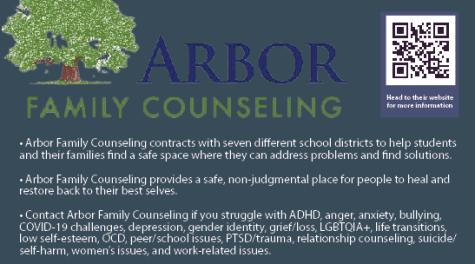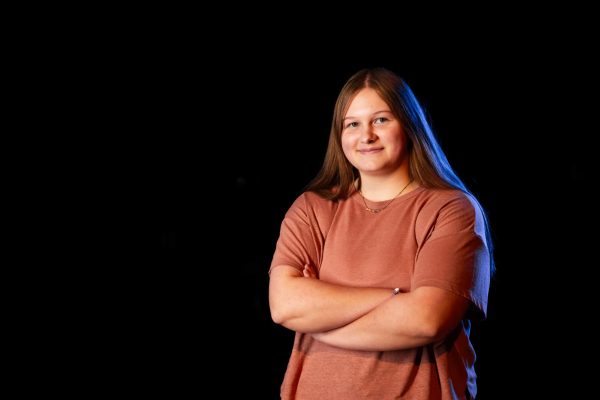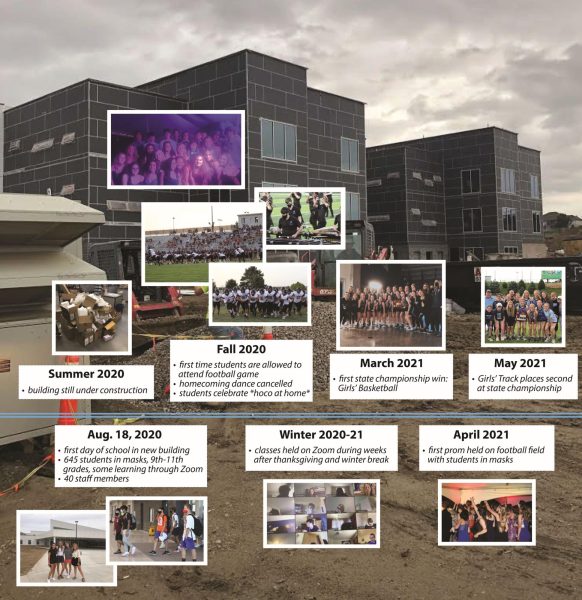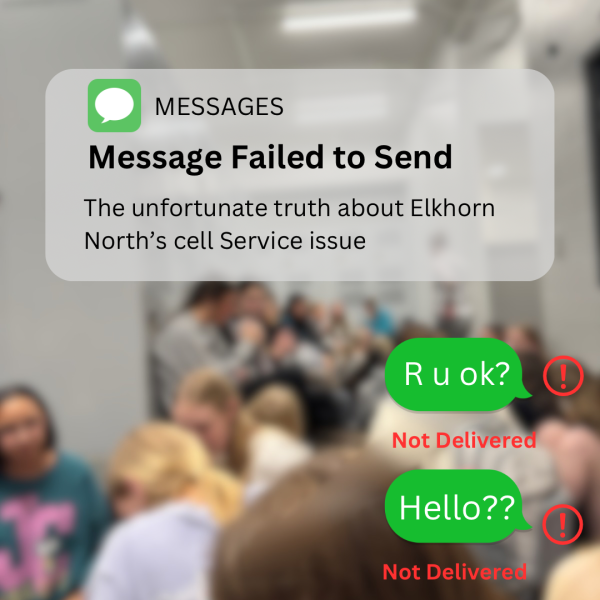The Gap Between
A disparity exists between the resources students seek and what the counselors can provide.

Teens have never felt more in the dark than in 2023 America. Mental health issues need to be a priority in schools for the sake of students’ well-being and ability to live a happy and healthy life.
Students have spoken out requesting additional mental health resources and support from administration and the school counselors. What many students do not know, though, is what support school staff can actually provide.
“There is a difference between a therapist and a school counselor, so if someone comes in to talk to us, and it’s something we feel like we are qualified to talk to them about, then we are able to do that,” school counselor Martha Dowd said.
“But if it is more serious than that, we would talk to the student at school and their parents about Arbor Family Counseling, which is a licensed mental health therapist.”
The counselors at school have a degree in school counseling and preventative mental health which allows them to help students with issues regarding academics, career stuff, preparing for college, social/emotional help, or anything else a student may need. They also have resources to help with smaller problems like class issues or friend issues.
School counselors do not have training to help with more major issues regarding diagnosing mental health issues, and they can’t provide ongoing therapy.
“If a student comes to us with safety concerns, there is a report that we fill out [with the student] so that we have everything documented,” school counselor Meg Starman said. “We always call home so we can make sure they are going home to a safe place and that the parents are aware of what’s going on.”
When a student’s mental state gets increasingly worse, the school counselors may not be equipped to help the student themselves. This is when the counselors get in contact with the student’s guardian and recommend extra steps outside of school to get the student whatever help they need.
One of these extra steps is Arbor Family Counseling which the counselors will recommend when they feel that a student’s mental state has become a safety concern to themself or to others or when a student has deeper issues than the school counseling degree prepared them to handle.
“Elkhorn Public Schools has a relationship with Arbor Family Counseling and that any student or staff member can contact Arbor Family and they can have two free sessions,” Dowd said, “All they need to do is say that they’re either a student or staff at Elkhorn Public Schools.”
Everything is kept confidential, so the school is not notified when a student or staff member goes to Arbor Family for services unless they tell the school themselves. Though they cannot provide ongoing services like Arbor Family can, the school counselors serve students to the best of their ability.
Counselors want students to know that they can trust them with important information about their lives including how they feel mentally.
“When a kid comes to us, we just have to be able to assess and meet them wherever they’re at in their mental health journey,” school counselor Sarah Zimmerman said.
The counselors work to accommodate each student’s needs, but sometimes students don’t feel enough is done to help them. Many students have expressed concern with the way Elkhorn Public Schools deals with student mental health issues. They want to see the counselors reach out more to create a friendly connection built off of trust.
“I don’t feel comfortable talking to the counselors and many students say that they don’t feel comfortable either,” junior Morgan Sachs said. “Last year I talked to a counselor since I was having a hard time, and they never followed up with me, so I felt like I wasn’t heard or cared about.”
Students recommend that the counselors try to seem more open and friendly so students feel more comfortable coming to them and discussing personal matters like their mental state. The students who have talked to the counselors previously suggest that the counselors reach out more regularly to make sure their mental state has improved and check that what was bothering them has been resolved.
“Mental health is a big problem right now and having a safe place and someone you can talk to that you can trust would be a really good change,” freshman Trenton Nolan said.
Students worry that the things they say won’t be kept confidential which makes students less likely to go to the counselors about their issues and mental health.
“When I am talking with a student, I let them know right away that if there is something that is said that I feel [they] are unsafe or someone else might be unsafe, I’m going to talk to [their] parents,” Dowd said. “The reason I say that is because I don’t want them to feel like I went behind their back and said something they didn’t want me to say; this is how I get them to be honest with me and trust me.”
Students want support, and counselors want to be supportive. With students more informed about the rules and responsibilities the counselors have in place, there can be better understanding between the two groups. Students will then feel reassured about the privacy and importance of their conversations with the counselors.
This can create a more open and trusting relationship between students and counselors.

Your donation will support the student journalists of Elkhorn North High School. Your contribution will allow us to purchase equipment and cover our annual website hosting costs.











